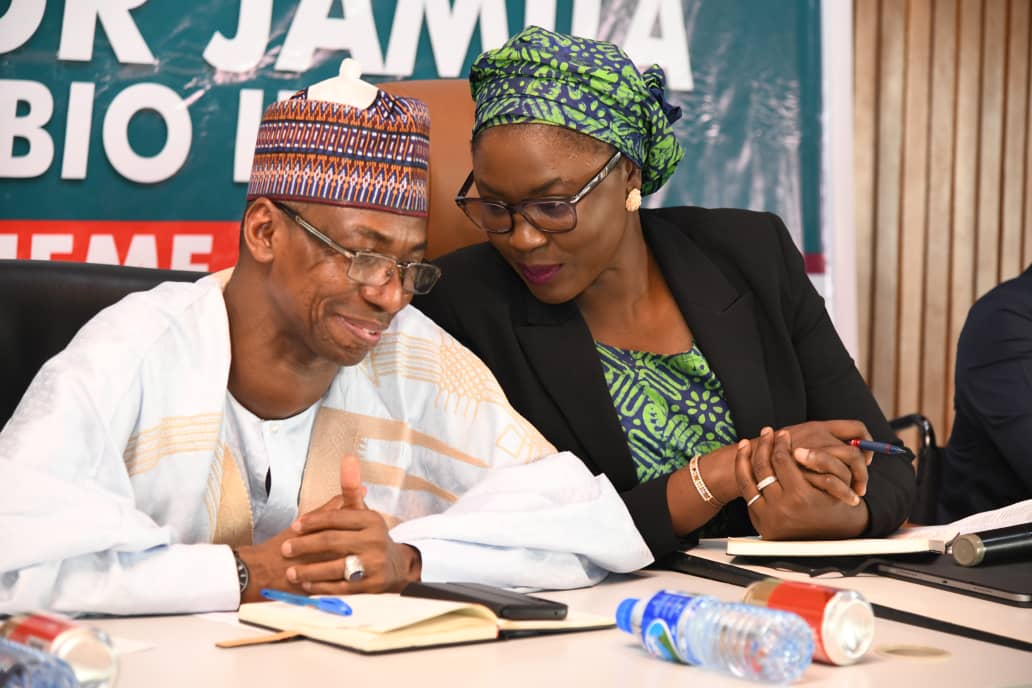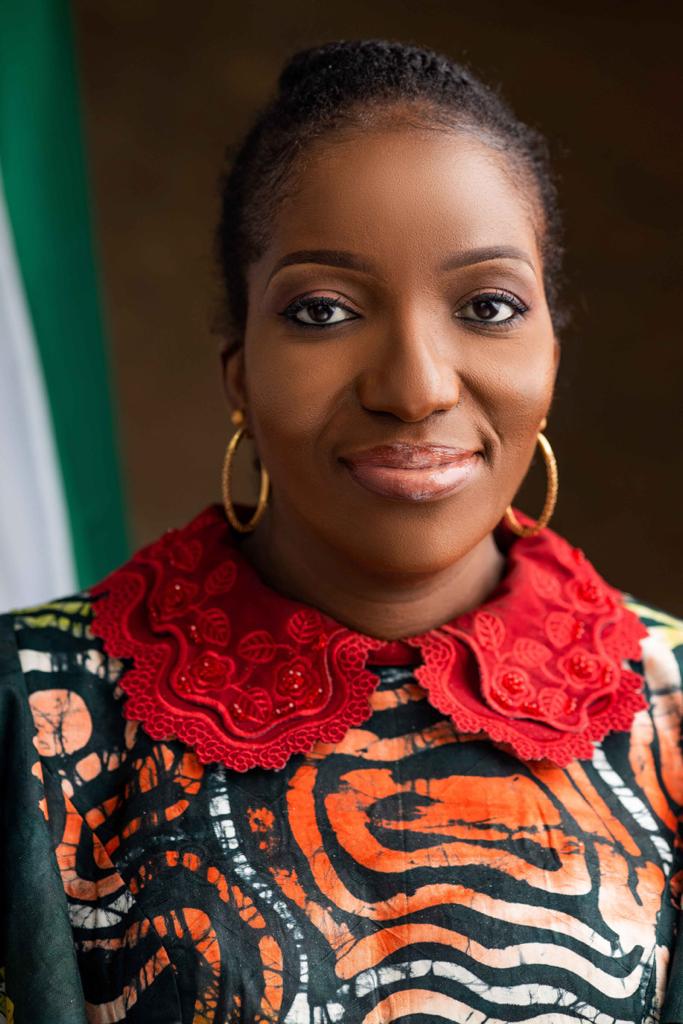Featured
FG commences the review of youth development policy with key stakeholders

Joel Ajayi
The federal government has taken comprehensive and proactive approach in addressing the challenges facing young people in Nigeria by commencing the process of a thorough review of the youth development policy.
Dr. Jamila Bio Ibrahim, the Minister of Youth Development, shared this important initiative during an interactive session with critical stakeholders from the 36 States including FCT in Abuja. The session, themed ‘Leadership and Public Policy: Grassroot Mobilisers – The Challenges and Remedies through Remodeling’, highlighted the government’s commitment to youth development.
Dr. Ibrahim emphasized the need for input from all critical stakeholders before presenting the draft of the Youth Development Policy to the Federal Executive Council (FEC) for approval. The government aims to involve all relevant parties in the process of establishing sustainable solutions to the prevalent issues, particularly by ensuring accessible financial resources for the younger generation, meaningful inclusion of youth, and addressing the requirements of individuals with special needs.
“We cannot progress without a comprehensive Youth Development Policy. Upon our arrival, we encountered an outdated policy, prompting us to devise programs and initiatives that actively engage young people and allow them to influence policy decisions.
“The current administration is committed to fostering trust between young people and the government. To achieve this synergy, we must wholeheartedly be committed to delivering on President Bola Ahmed Tinubu’s “Renewed Hope Initiatives” as promised”, she stated.
Hon. Abbah Isah, the Senior Special Assistant to the President on People with Special Needs and Equal Opportunities, emphasized that 40 percent of Nigerian youth living with disabilities face significant hardships, including limited access to basic social amenities, economic instability leading to financial hardship, and inadequate healthcare services.
He also highlighted other challenges that this demographic encounters on a daily basis.
Furthermore, Abah, expressed his appreciation for Mr. President’s for unwavering dedication to ensure that all segments of society receive the necessary support and attention within the framework of the ‘Renewed Hope Agenda’ of his administration.
In his closing remarks, the Permanent Secretary to the Ministry, Dr. Dunoma Umar Ahmed, thanked the participants and stated that the interactive session will be a continuous engagement with critical stakeholders across the country.
Featured
NAPTIP Restates Commitment To Fighting Human Trafficking

Joel Ajayi
… decries corruption in law enforcement, weak legislation
The Director-General of the National Agency for the Prohibition of Trafficking in Persons (NAPTIP), Prof. Fatima Waziri-Azi, has pledged the agency’s commitment to fight human trafficking.
Waziri-Azi gave the assurance during an anti-corruption radio program, PUBLIC CONSCIENCE, produced by the Progressive Impact Organization for Community Development, PRIMORG, in Abuja.
The commitment by NAPTIP follows an investigative report by Human Angle Media exposing how many Nigerians trafficked to Egypt are inhumanely treated and exploited by their sponsors.
Represented by the agency’s Director of Public Enlightenment, Mrs. Kehinde Akomolafe, decried the rising number of Nigerians who are victims of trafficking, pledging that “NAPTIP is fighting on all sides to curb human trafficking.”
Akomolafe disclosed that the agency is aware of the report of Nigerians trafficked to Egypt and has already commenced interventions to rescue them while warning citizens to be wary of “offers that are too good to be true.”
She identified weak legislation, lengthy judicial processes, and corrupt law enforcement officials as factors aiding and abetting trafficking in Nigeria and elsewhere in the world.
“Corruption is endemic and cuts across other countries of the world, and that’s why trafficking is easily perpetrated in Nigeria and around the globe. You find law enforcement officials aiding and abetting traffickers. Some of them know these traffickers from their operations either at the entry or exit point. They give them something or become too familiar with them.
“Apart from the bribery aspect, we also have officials turning a blind eye to trafficking activities, and that’s why for us at the agency (NAPTIP), we are not resting.”
According to her, the agency, from inception, secured 672 convictions, 67 in 2023, and 35 persons so far this year (2024). She added that “NAPTIP is winning the war against trafficking but still wants stiffer punishment for traffickers and the support of the judiciary in hastening cases.
“weak legislation is aiding trafficking. That’s why the agency continues pushing for amendments. Currently, NAPTIP is pushing for stiffer punishment against traffickers that will lead to confiscation of their monies and property.
“NAPTIP Director-General (Prof. Fatima Waziri-Azi) is fighting on all sides against human trafficking.
“Where law enforcement officials are found complicit, NAPTIP Director-General does not take it lightly; she doesn’t compromise her anti-corruption stance even when a staff is involved,” Akomolafe stated.
According to the Editor of Southern Operations, Human Angle Media, Kabir Adejumo, many Nigerians trafficked to Egypt engage in forced labour. They are also living in fear as authorities go after illegal immigrants.
Adejumo said victims interviewed during the investigation are willing and interested in returning home, but their sponsors refuse to release their travel passports and threaten to implicate them.
He also revealed that the NAPTIP and Nigerians in Diaspora Commission (NIDCOM) are aware of the plight of Nigerians trafficked in Egypt and have currently rescued one person.
On her part, the Programme Manager of the Human Angle Foundation, Angela Umoro-David, expressed satisfaction at NAPTIP’s response to trafficking cases while urging the agency to stay on course with their mandate.
Umoro-David called on Nigerians to use a Freedom of Information platform (foi.humananglemedia.com) to help citizens navigate requests for public records from different government parastatals and agencies.
She stressed that the platform “is a website where people can submit their FOI requests to us (Human Angle), and we’ll submit it on their behalf to the particular agency. So we act as middlemen, connecting these government parastatals to the citizens”.
Public Conscience is a syndicated weekly anti-corruption radio program PRIMORG uses to draw government and citizens’ attention to corruption and integrity issues in Nigeria.
The program has the support of the MacArthur Foundation
-

 Featured5 years ago
Featured5 years agoLampard Names New Chelsea Manager
-

 Featured4 years ago
Featured4 years agoFG To Extends Lockdown In FCT, Lagos Ogun states For 7days
-

 Featured5 years ago
Featured5 years agoNYSC Dismisses Report Of DG’s Plan To Islamize Benue Orientation Camp
-

 Featured4 years ago
Featured4 years agoChildren Custody: Court Adjourns Mike Ezuruonye, Wife’s Case To April 7
-

 Featured3 years ago
Featured3 years agoTransfer Saga: How Mikel Obi Refused to compensate me After I Linked Him Worth $4m Deal In Kuwait SC – Okafor
-
Sports2 years ago
TINUBU LAMBAST DELE MOMODU
-

 News11 months ago
News11 months agoJubilation In Kaduna As Tribunal Upholds Ekene Adam Winner Of Reps Election
-
Featured5 years ago
Board urges FG to establish one-stop rehabilitation centres in 6 geopolitical zones
